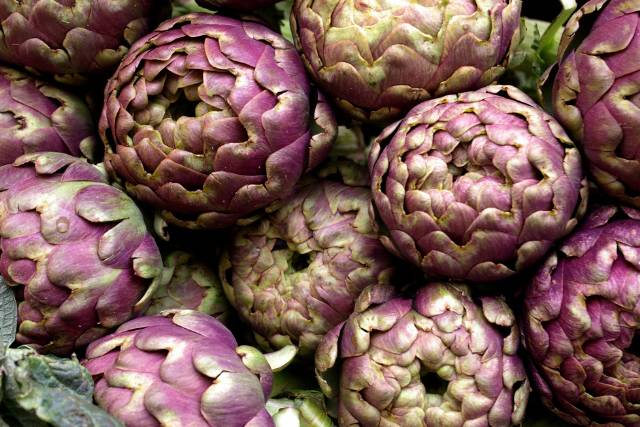Recent Posts
-

- Diabetes-Friendly Nutrition: Smart... 08.12.2024
-

- Nutrition for Chronic... 08.12.2024
-

- Anti-Inflammatory Diet: Food... 08.12.2024
-

- Low-Sodium and Heart-Healthy:... 08.12.2024
-

- Plant-Based Diets for... 08.12.2024
Heart-Healthy Goodness: The Nutritional Benefits of Artichokes

Artichoke, also known as Cynara scolymus, is a vegetable that is very versatile and treasured for its delicate, mushy center as well as its delicious inner leaves. This plant, which resembles a thistle and is native to the Mediterranean area, is a member of the sunflower family (Asteraceae) and has been grown for millennia for culinary and medicinal applications.
The immature flower bud of the artichoke is the portion of the vegetable that may be eaten, and it is picked before the flower completely blooms. It is common for the outside leaves to be harsh and inedible; however, as one moves closer to the center of the plant, the leaves grow progressively sensitive, ultimately leading to the heart, which is highly appreciated. Artichokes are well-known for their extraordinary flavor, which combines a somewhat nutty taste with a sweetness that is not overpowering.
Artichokes benefit health by including a high concentration of dietary fiber, antioxidants, and a wide range of vitamins and minerals. The fact that they can improve digestion, support liver function, and contribute to heart health is one of the reasons why they are precious.
It is impossible to overstate the versatility of artichokes in the realm of cuisine. It is common practice to include them in a wide range of recipes, including salads, dips, and casseroles, and they may be prepared by steaming, boiling, grilling, or roasting. In addition, whether fresh or canned, artichoke hearts are a common component of dishes prepared in Italian and Mediterranean cuisines.
In addition to its gastronomic appeal, the artichoke is a symbol of profound importance in several different civilizations and has been included in art and literature. The artichoke remains a famous vegetable due to its unique structure and delectable flavor. It lends a touch of refinement and elegance to various culinary creations.
Dietary Fiber
Eat a lot of artichokes because they are a great source of dietary fiber, which is beneficial to digestion and helps to keep the digestive system in good condition. As a result of the high fiber content of artichokes, which may contribute to feelings of fullness, these vegetables are an excellent option for those attempting to control their weight.
The antioxidants
Quercetin, rutin, anthocyanins, and silymarin are some of the antioxidants that may be abundant in artichokes. Free radicals in the body may be neutralized with the assistance of antioxidants, which may reduce oxidative stress and inflammation.
Vitamins
Several vitamins may be found in artichokes, including vitamin C, vitamin K, and folate. Vitamin K is involved in the process of blood clotting and bone health, while folate is essential for the synthesis of DNA and the division of cells. Vitamin C is vital for the immune system's operation and maintaining healthy skin.
Minerals
Among other nutrients, minerals such as potassium, magnesium, phosphorus, and manganese may be found in artichokes. Potassium is vital for the heart's and blood pressure's healthy functioning, whereas magnesium is necessary for the proper functioning of the muscles and nerves.
Less in terms of calories and fat
Artichokes are an excellent complement to a well-balanced diet because they contain a meager amount of calories and fat. They may be accommodating for those who are attempting to regulate their weight or lose weight via weight loss.
Fibre Prebiotic
Prebiotic properties are shown by the kind of fiber that may be found in artichokes, notably inulin. As a result of their ability to encourage the development and activity of beneficial gut bacteria, prebiotics are helpful to gut health and can potentially improve overall functioning.
Health of the Liver
Artichokes contain several compounds, including cynarin and silymarin, which have been investigated for the possible health advantages they may provide to the liver. These substances may encourage liver function and assist with detoxification processes.
Even though artichokes provide numerous nutritional advantages, it is essential to note that the nutritional content of individual artichokes might vary depending on variables such as their size and the cooking techniques used. Incorporating a wide range of fruits and vegetables into your diet is the most effective method for ensuring that you get a comprehensive range of nutrients beneficial to your general health and well-being.
Disclaimer: The information provided in this article is for general information purposes only. All information in this article is sourced from other websites, and we do not represent any rights regarding the contents and information on the site. All rights belong to their original owner.





